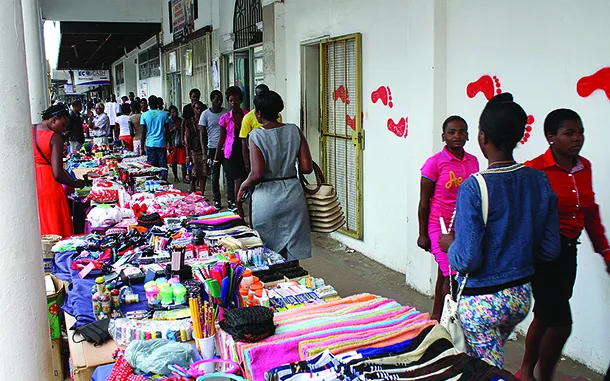BATSIRAI Pabwe picked detergents, toothpaste, snacks and some pasta among several grocery items spread on the tarmac of a car parking space — an unorthodox night bazaar illuminated by cellphone flashlights and fluorescent lamps in Zimbabwe’s capital, Harare. Traditional stores are struggling to survive as the volatility of Zimbabwe’s new currency pushes prices up. Many, including Pabwe, now shun them for much cheaper informal markets that pop up at night to avoid the glare of authorities.
From dusk, sidewalks, store or office verandas and car parking spaces become unorthodox open-air bazaars, offering anything from groceries to fresh meat, electronics, clothes, medicines, fashion accessories and stationery. Unfettered by expenses such as rising energy costs, taxes and laws that force formal retailers to accept the local currency at artificially low official exchange rates, informal traders, including children, offer better bargains. A box of juice that sells for $3 in a supermarket costs half of that on the street.
“It’s my first time shopping here. My friend told me that it’s much cheaper than the supermarkets,” 30-year-old Pabwe said, visibly relieved as he filled up a plastic bag with items for just US$20. “I decided to give it a try and I really enjoyed it.
” For the same amount in a supermarket a week ago, Pabwe said he managed to get only “meat and spices and they were not even that much.” The once-prosperous southern African nation of 15 million pe.



















